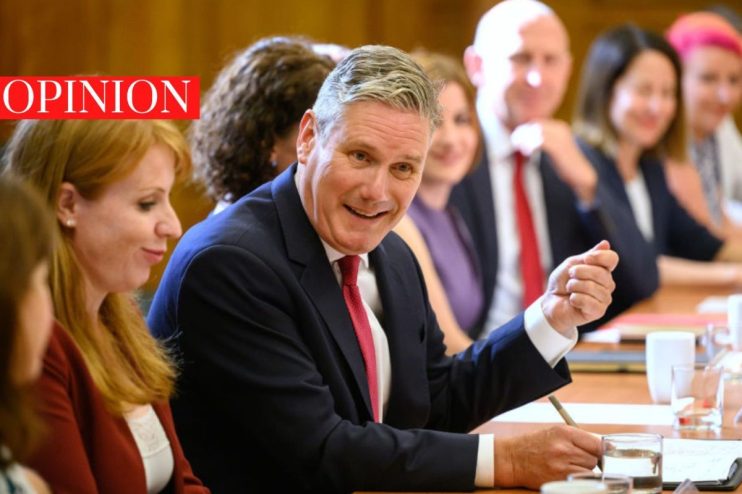Let’s be honest, Keir Starmer’s Labour party don’t know how to fix Broken Britain either

As the Conservatives are hit with another scandal, this time over crumbling concrete in schools, Sir Keir Starmer is yet to come up with an original plan other than his vacuous ‘missions’, writes Matthew Lesh.
The political strife scale flies around social media when politicians face difficulty. It starts off mildly with a status like “colourful” and “controversial” and then works its way up to “beleaguered” and “embattled” until someone becomes “former” and “disgraced”. The Conservative government almost certainly moved up another notch this week — perhaps somewhere in the vicinity of “besieged”.
The latest conflict is over the unlikely subject of concrete. Reinforced Autoclaved Aerated Concrete (RAAC) is a bubbly, lightweight, and cheap material used in schools and other public buildings across the second half of the 20th century. Problematically, it is not particularly durable, with a lifespan of only 30 years. Over 150 schools with buildings containing Racc have been identified as being at risk of collapse.
Consequently, some schools cannot reopen for the new term. The government is now getting the blame for failing to invest enough in maintenance. The best defence they can muster is that the scale and seriousness of theproblem was not clear until recently. Hardly reassuring. To make matters worse, Education Secretary Gillian Keegan was caught in an open mic moment declaring that she had done a “f****** good job” whileothers had sat “on their arses”. Self-congratulation at a time of crisis does not exactly demonstrate competent leadership.
Suffice it to say, this is an absurdly apt metaphor for the disrepair that Britain’s economy has fallen into.. An extraordinary 7.5 million people are waiting for treatment in the NHS, while junior doctors and consultants coordinate their upcoming walkouts to maximise disruption. This comes after a summer filled with transport strikes. Homeownership has become unaffordable for millions of young people, removing the opportunity for secure ownership, delaying family creation and increasing living costs. We are also facing the highest tax burden in the post-war era, while public service quality only seems to worsen.
The general economic news is not much better, despite recent ONS data revisions painting a better short-term picture on GDP. The workforce is still smaller than before the pandemic, with millions more claiming out-of-work benefits. Incomes have been declining in real terms over recent years, as skyrocketing inflation combined with low productivity growth. This is, of course, nothing new.
Economic growth has been stagnant for well over a decade. The challenges looking forward are also terrifying – namely, an ageing population putting more pressure on healthcare, social care and pensions just as tax revenues take a hit from a declining workforce.
Taken together, the news is pretty bleak. The Tories, who have been in power for 13 years, appear incapable of addressing these fundamental issues. The public has certainly lost faith, with the Tories’ primary vote languishing below 30 per cent for the last year and Labour on track to form a government with 45 per cent support.
But this will likely be a case of the old political truism that elections are about throwing out bad governments rather than electing oppositions. Labour has done well-enough identifying the problems well but shows little willingness or ability to address them. The rhetoric around reform – be it the NHS or the housing market – is welcome. But “missions” like the highest growth in the G7 or breaking down barriers to opportunity are vacuous without meaningful reform.
If Labour cannot make difficult but necessary reform decisions to get Britain moving, they might find themselves beleaguered or even embattled in the not-too-distant future.